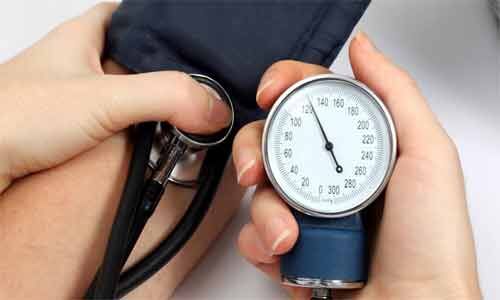- Home
- Medical news & Guidelines
- Anesthesiology
- Cardiology and CTVS
- Critical Care
- Dentistry
- Dermatology
- Diabetes and Endocrinology
- ENT
- Gastroenterology
- Medicine
- Nephrology
- Neurology
- Obstretics-Gynaecology
- Oncology
- Ophthalmology
- Orthopaedics
- Pediatrics-Neonatology
- Psychiatry
- Pulmonology
- Radiology
- Surgery
- Urology
- Laboratory Medicine
- Diet
- Nursing
- Paramedical
- Physiotherapy
- Health news
- Fact Check
- Bone Health Fact Check
- Brain Health Fact Check
- Cancer Related Fact Check
- Child Care Fact Check
- Dental and oral health fact check
- Diabetes and metabolic health fact check
- Diet and Nutrition Fact Check
- Eye and ENT Care Fact Check
- Fitness fact check
- Gut health fact check
- Heart health fact check
- Kidney health fact check
- Medical education fact check
- Men's health fact check
- Respiratory fact check
- Skin and hair care fact check
- Vaccine and Immunization fact check
- Women's health fact check
- AYUSH
- State News
- Andaman and Nicobar Islands
- Andhra Pradesh
- Arunachal Pradesh
- Assam
- Bihar
- Chandigarh
- Chattisgarh
- Dadra and Nagar Haveli
- Daman and Diu
- Delhi
- Goa
- Gujarat
- Haryana
- Himachal Pradesh
- Jammu & Kashmir
- Jharkhand
- Karnataka
- Kerala
- Ladakh
- Lakshadweep
- Madhya Pradesh
- Maharashtra
- Manipur
- Meghalaya
- Mizoram
- Nagaland
- Odisha
- Puducherry
- Punjab
- Rajasthan
- Sikkim
- Tamil Nadu
- Telangana
- Tripura
- Uttar Pradesh
- Uttrakhand
- West Bengal
- Medical Education
- Industry
Higher uric acid concentration may lead to high BP: PLOS One

Japan: Higher uric acid concentration at baseline is associated significantly with non-attainment of optimal blood pressure (NOBP) on the first use of antihypertensive drug(s), according to a recent study published in the journal PLOS One.
There exists a significant relationship between increased uric acid concentration and both prevalent and incident hypertension. However, there is a scarcity of data regarding the influence of higher uric acid concentration at baseline on blood pressure (BP) control by antihypertensive drugs. To fill this gap, Yuji Sato, National Health Insurance Takachiho Town Hospital, Takachiho, Miyazaki, Japan, and colleagues performed a prospective cohort study.
This study enrolled Japanese community-based cohort (N = 8,664; age 65.5 ± 6.4 years; women, 55.0%) who were not using antihypertensive drugs on the first visit for a health check-up program but started using antihypertensive drug(s) on the next-year visit. The participants were classified into quartiles based basic uric acid concentration. Odds ratios (ORs) were calculated for non-attainment of optimal blood pressure (NOBP) as the primary outcome measure.
The study outcome was the non-attainment of optimal blood pressure (NOBP). NOBP level was defined according to the Japanese hypertension guideline.
Key findings of the study include:
- Multivariable logistic analysis showed that quartile 4 was significantly associated with NOBP when quartile 1 was set as the reference (OR, 1.36), adjusted for potential confounders, such as age, sex, body mass index, presence of diabetes/dyslipidemia/chronic kidney disease (CKD), a history of cardiovascular disease, daily drinking, and current smoking.
- In the subgroup analysis of female participants and participants with diabetes and CKD, a significant association was observed between +1 mg/dL of uric acid and NOBP.
"Higher uric acid concentration at baseline was significantly associated with NOBP on the first use of antihypertensive drug(s)," concluded the authors.
The study obviously demonstrated that higher baseline uric acid level could have negative effects on antihypertensive therapy; therefore, hyperuricemia should be raised as one of the important factors in the management of hypertensive subjects.
The study, "Higher baseline uric acid concentration is associated with non-attainment of optimal blood pressure," is published in the journal PLOS One.
Dr Kamal Kant Kohli-MBBS, DTCD- a chest specialist with more than 30 years of practice and a flair for writing clinical articles, Dr Kamal Kant Kohli joined Medical Dialogues as a Chief Editor of Medical News. Besides writing articles, as an editor, he proofreads and verifies all the medical content published on Medical Dialogues including those coming from journals, studies,medical conferences,guidelines etc. Email: drkohli@medicaldialogues.in. Contact no. 011-43720751


